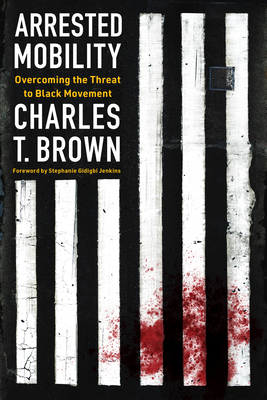Arrested Mobility: Overcoming the Threat to Black Movement

Arrested Mobility: Overcoming the Threat to Black Movement
In the US, police conduct millions of traffic stops for reasons unrelated to safety. Study after study confirm that Black drivers experience higher rates of non-safety stops, searches, and use of force than White drivers.
In Arrested Mobility: Overcoming the Threat to Black Movement, Charles T. Brown, founder and CEO of Equitable Cities, examines why mobility is not afforded in the same way to everyone. He argues that the legacy of structural racism and White supremacy has led to disinvestment and over-policing in Black communities and communities of color, thwarting opportunity, as physical mobility and social mobility are intrinsically linked. This experience for Black people around the world is what Brown refers to as arrested mobility.
Mobility embodies freedom and allows people, places, and cities to thrive. In the US, freedom--synonymous with national identity--is so often represented by acts of movement such as walking, cycling, driving a car or traveling to a different city. However, for Black Americans, exercising freedom of mobility continues to mean confronting the harsh reality of White fear, fragility, and violence.
Understanding the causes of arrested mobility, will help us to develop solutions to increase mobility for Black people and other marginalized groups, Brown explains. The conditions society has created have their roots in what Brown calls "The Four Ps" Polity, Policy, Planning, and Policing. He examines the four P's, drawing from research, his own experience and the experience of other Black Americans. Brown then suggests solutions, some of which are already being implemented in the US.
In Arrested Mobility, Brown shows how un-arresting mobility creates an opportunity not just for a better society for Black people, but for all people. Arrested mobility is detrimental to our society as a whole, not just the people it directly harms. By not providing equitable access to jobs, community resources, and public spaces, we are limiting the potential of a large percentage of our population to participate and contribute to society. Change is possible. We can un-arrest mobility together. Charles T. Brown shows us how.
PRP: 234.90 Lei
Acesta este Prețul Recomandat de Producător. Prețul de vânzare al produsului este afișat mai jos.
211.41Lei
211.41Lei
234.90 LeiLivrare in 2-4 saptamani
Descrierea produsului
In the US, police conduct millions of traffic stops for reasons unrelated to safety. Study after study confirm that Black drivers experience higher rates of non-safety stops, searches, and use of force than White drivers.
In Arrested Mobility: Overcoming the Threat to Black Movement, Charles T. Brown, founder and CEO of Equitable Cities, examines why mobility is not afforded in the same way to everyone. He argues that the legacy of structural racism and White supremacy has led to disinvestment and over-policing in Black communities and communities of color, thwarting opportunity, as physical mobility and social mobility are intrinsically linked. This experience for Black people around the world is what Brown refers to as arrested mobility.
Mobility embodies freedom and allows people, places, and cities to thrive. In the US, freedom--synonymous with national identity--is so often represented by acts of movement such as walking, cycling, driving a car or traveling to a different city. However, for Black Americans, exercising freedom of mobility continues to mean confronting the harsh reality of White fear, fragility, and violence.
Understanding the causes of arrested mobility, will help us to develop solutions to increase mobility for Black people and other marginalized groups, Brown explains. The conditions society has created have their roots in what Brown calls "The Four Ps" Polity, Policy, Planning, and Policing. He examines the four P's, drawing from research, his own experience and the experience of other Black Americans. Brown then suggests solutions, some of which are already being implemented in the US.
In Arrested Mobility, Brown shows how un-arresting mobility creates an opportunity not just for a better society for Black people, but for all people. Arrested mobility is detrimental to our society as a whole, not just the people it directly harms. By not providing equitable access to jobs, community resources, and public spaces, we are limiting the potential of a large percentage of our population to participate and contribute to society. Change is possible. We can un-arrest mobility together. Charles T. Brown shows us how.
Detaliile produsului










